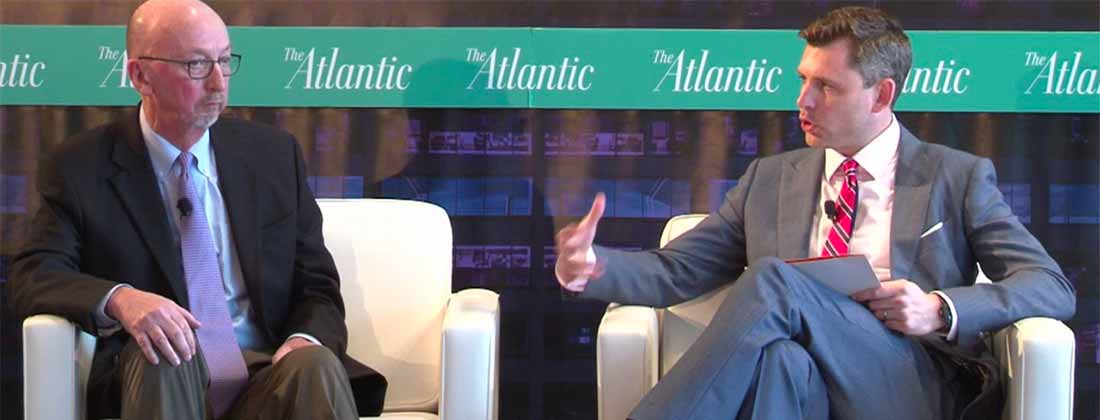Episode 19
Affordability, effectiveness among top education policy issues in 2020
Jan. 31, 2020
College affordability, education for incarcerated and formerly incarcerated people, the continued growth of mega-universities, and the closure of small institutions are among the issues likely to dominate education policy and generate headlines in 2020.
Those are the views of Jesse O’Connell, strategy director for federal policy at Lumina Foundation, who joined me on Episode 19 of the Lumina podcast “Today’s Students/Tomorrow’s Talent” to discuss trends in higher education.
O’Connell offered six predictions for 2020:
Attention will remain on states and the innovations they create to make education more affordable, accessible, and effective.
With political gridlock continuing to grip Washington, the states have been creating their own education policies. In Indiana, for example, 19,000 adults have enrolled in the You Can. Go Back. program, which makes it easier for Hoosiers to earn degrees through night, weekend and online classes, grade and debt forgiveness, tuition discounts and $1,000 state grants. Of those, 11,000 have completed their degrees.
In Virginia, the state audited its financial aid policies and found better ways to get money to students who need it most. Other states are looking at the best ways to spend their education dollars.
And as states look to develop a well-prepared workforce, they also want to ensure that the credentials their residents earn are of high quality.
Education for incarcerated populations will receive more attention.
O’Connell credits the PBS documentary “College Behind Bars,” which came out late last year, with bringing the issue to the forefront. Interest groups on the left and the right support efforts to educate those who have been affected by the criminal justice system; the focus now is on making sure the education they’re offered has demonstrable value—even for those who will be incarcerated for life. “I think it’s part of why we see this issue embraced by such a wide set of stakeholders,” O’Connell said.
College affordability will be discussed in an ever-increasing number of ways.
As O’Connell notes, affordability is the first thing people think about when they talk about higher education. It’s an issue with the broadest set of challenges and solutions, and it fosters debate on ideas such as free college, debt forgiveness and income-sharing agreements. He expects a more nuanced discussion this year, one that leads to targeted policy prescriptions to address such issues as financing student aid programs, setting tuition rates, and increased debt among students of color.
Institution closures are likely to continue as some small schools struggle to attract students and adapt to who today’s students are.
The issue of school closures is one with many facets, O’Connell said, including what these closures mean for the communities where the schools are located, how small schools can adapt through mergers, partnerships, and consolidation, and how closures affect students who suddenly no longer have a school near their home. (Listen to our two-part series from 2019 covering this issue here and here.)
The growth and influence of mega-universities such as Southern New Hampshire, Arizona State, and Liberty—all of which serve over 100,000 students either in classrooms or through online education—will be closely watched.
In January, Southern New Hampshire announced that students at Pennsylvania’s 14 public community colleges can now transfer up to 45 credits toward an associate’s degree or up to 90 credits toward a 120-credit bachelor’s degree at SNHU, which puts pressure on Pennsylvania’s public universities. That’s just one way these large-scale institutions are affecting higher education. There are likely to be others as big companies such as Walmart and McDonald’s work on a national scale to provide educational opportunities for their workforces.
Congress may be able to agree on some revisions to the Higher Education Act. Other areas are less certain.
Student aid, quality assurance, funding for historically black colleges and universities, and FAFSA simplification are some areas of agreement. But Title IX issues and ways to measure student outcomes are still up in the air. “I don’t know if we’re going to get all the way there in 2020,” O’Connell said.
Despite all the issues that hang in the balance in 2020, O’Connell said we “should be proud of the progress that we’ve seen. Certainly more Americans are finding ways to engage with education after high school, while acknowledging that there still is a lot of work to do. As new opportunities open up, we should be ready to seize hold of them.”


 iTunes
iTunes Spotify
Spotify Google Podcasts
Google Podcasts YouTube
YouTube